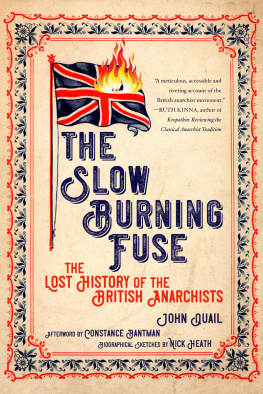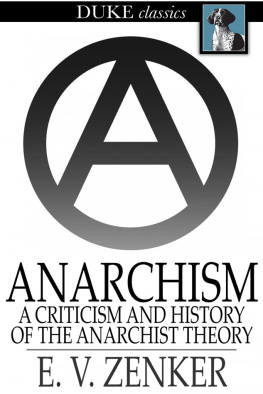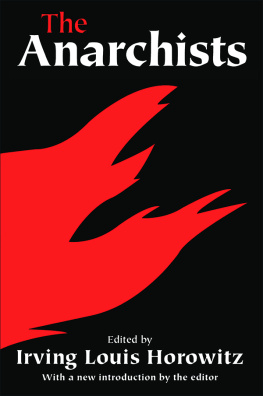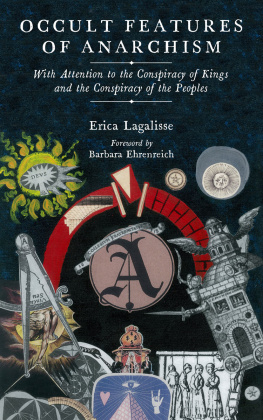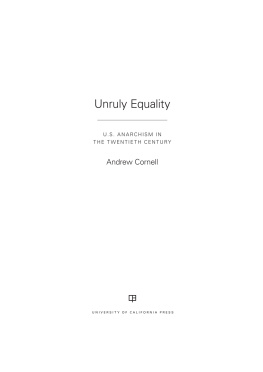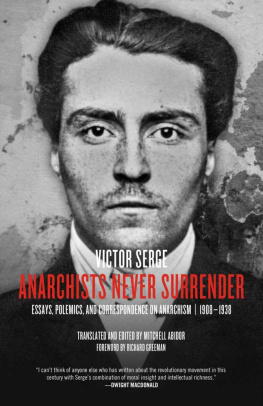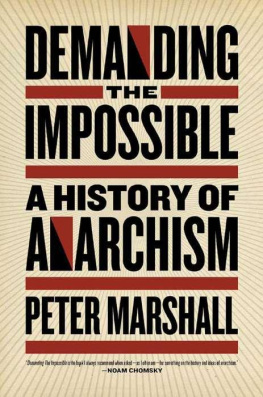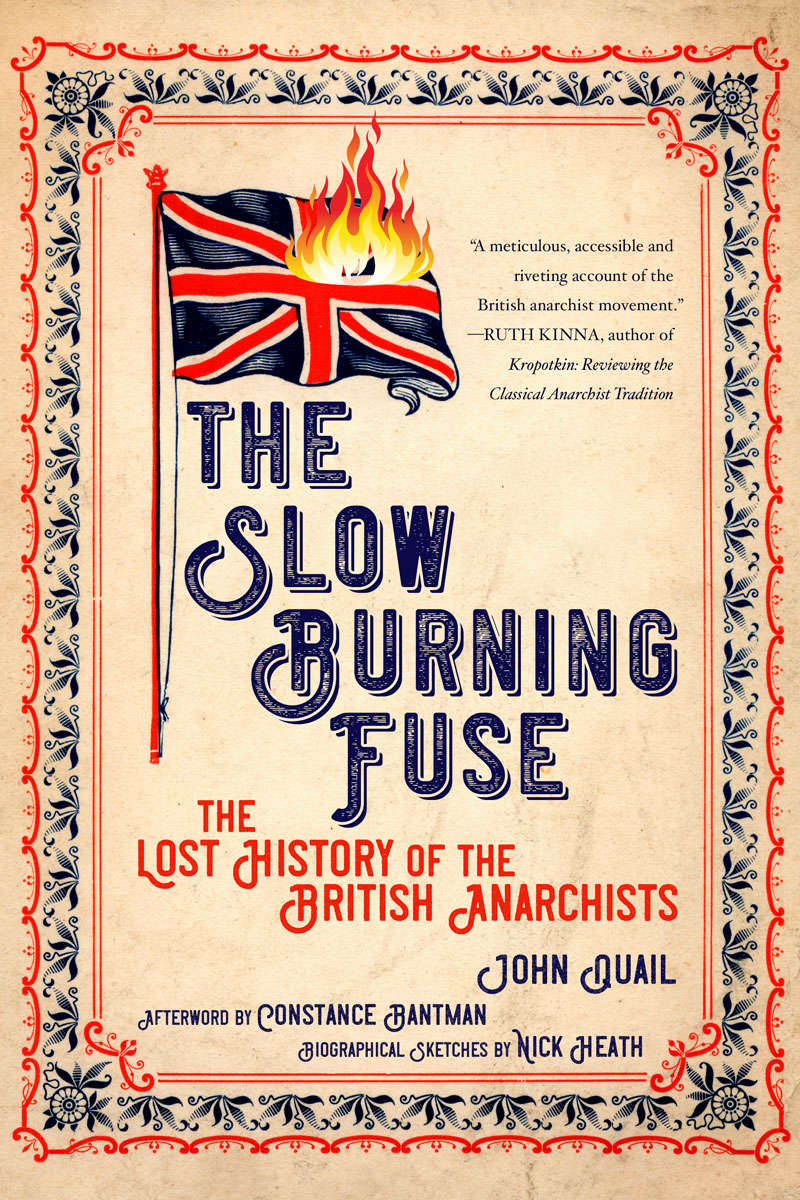

The Slow Burning Fuse: The Lost History of the British Anarchists
This edition 2019 PM Press and Freedom Press
All rights reserved
Printed 2017 by Freedom Press
First published by Granada Publishing Limited in Paladin Books, 1978
ISBN: 978-1-62963-582-8
Library of Congress Control Number: 2018931532
Cover by John Yates/stealworks.com
PM Press
PO Box 23912
Oakland, CA 94623
www.pmpress.org
Freedom Press
84b Whitechapel High St, London
E1 7QX
www.freedompress.org.uk
10 9 8 7 6 5 4 3 2 1
ACKNOWLEDGEMENTS
The work for this book has involved research at archives and reference libraries. Since I was not supported by grants or by any academic institution this could have been a rather desperate undertaking. I had, however, the sense to work part-time as a stagehand at the Fortune and Drury Lane theatres during the writing of the book, which kept my feet very much on the ground.
I would like to thank the following for the discussions and the pleasant experience of working with them: Arthur, Reg, Allen, Bob and John from the Fortune; and Alan, Kenny, Billy, Del, Brian, Tim, Tom, Jim, John, Colin, Richard and Sabba at the Theatre Royal, Drury Lane.
Perhaps as an unofficial historian I have had to rely more than others on an informal network of interested, knowledgeable and helpful people. Without them this book would be rather worse than it is now. For more particular information and assistance, I must thank the following people.
First mention must go to my comrade Ken Weller. In no way, however, does this diminish the great help I have received from Nick Massey, Francis Devine, Dave Poulson, Jeffe Jeffers, Raphael Samuel, Stan Shipley, Albert Meltzer, Sheila Rowbotham, Rachel Howe, Sam Dreen, Bill Fishman, Anna Davin, Rudolf de Jong and Thea Duijker and Mieke of the International Institute of Social History at Amsterdam, the Keeper and staff of the Brotherton Collection at Leeds University, Grayson Holden, Tom Woodhouse, Jerry Ravetz, Mary Canipa and Freedom Press, Tony Bunyan, Mark Kramrisch and Nicolas Walter.
This book is dedicated to the memory of two Leeds anarchists, Billy MacQueen (d. 1908) and my friend George Cummings (d. December 1975).
CONTENTS
FOREWORD
John Quails history of British anarchism was a groundbreaking document. It was one of the first books to address itself to the lost history of the movement. Only Albert Meltzer had previously addressed the subject in any detail in his The Anarchists in London 19351955: A Personal Memoir which had appeared two years before in 1976. As Comrade Quail notes in his bibliography, E.P. Thompsons book on William Morris had important information on anarchist activity in the Socialist League, though, as he warned, whilst it was sourced from primary sources it has a quite pronounced bias against anarchism.
Since then we have had Ken Wellers Dont Be A Soldier! The Radical Anti-war Movement in North London 19141918, containing much information on anarchists and libertarian socialists active in this period, which appeared in 1985; Sheila Rowbothams essay on The Sheffield Anarchists in the 1890s (1979), and some pieces on the history of the British movement in the magazine the Raven and in the Freedom Press Centenary edition book Freedom: A Hundred Years October 1886 to October 1986.
In addition we have had the pamphlet Left-wing Communism in Britain 19171921 An Infantile Disorder? by Bob Jones (1984), Mark Shipways book Anti-Parliamentary Communism: The Movement for Workers Councils in Britain 19171945 (1988) and the anthology produced by Wildcat, Class War on the Home Front: A History of the Anti-Parliamentary Communist Federation (1986), all of which gave details of anti-parliamentary and anarchist activity between the wars and filled a gap in Quails book.
Recently there has been a welter of new articles on the British movement thanks to the efforts of the Kate Sharpley Library, which reprinted important pamphlets by George Cores and Wilf McCartney, as well as providing much new information, and of the Libcom website, which has published many new biographies of British anarchist militants and histories of anarchist activities in Aberdeen, Brighton, Dundee, Manchester, Stockport, East London and the Welsh valleys.
Yet research on the history of the British movement still seems to be in its late infancy and much more work needs to be done in rediscovering individual anarchist activists and local movements hidden from history for too long. It is a sign of the renaissance of anarchism in general that the tempo of material being produced on the British anarchist movement is increasing. For too long both bourgeois historians and those allied to either the Communist Party or the various Trotskyist groups have, consciously or not, obscured or distorted the history of British anarchism and of broader movements into which anarchists had an important input. For example the anarchist origins of quite a few founding members of the British Communist Party, like Harry Pollitt, etc., are ignored by C.P. historians.
Quails book deals in great detail with the anarchist movement up until and during World War One, and then gives brief details of the movement in the interwar period, as well as a cursory look at the re-emergence of anarchism after the Second World War. Some of his closing comments on the fate of the movement are still extremely cogent today, though I would take issue, as very much an organisational anarchist, with some of his comments on organisation in his conclusion.
John Quails book remains an important one, a pioneering work in dragging the history of the British movement out of obscurity. Freedom Press should be congratulated on republishing it after so many years.
Nick Heath
A PERSONAL INTRODUCTION
Some years ago I was talking to a friend of mine in Leeds who was doing a thesis on British labour history. He asked me if I had ever heard of a group of people who had been arrested for a bomb conspiracy in 1892, a group known as the Walsall anarchists. What? British anarchists? I had never heard anything like it. I had cut my eye teeth as an anarchist arguing with Trotskyists and communists over Spain and Russia. I had wondered why left-wing politics always had to do with foreign parts, though I had found much disputational mileage in the events in Barcelona in 1936 (the capacity of the proletariat for spontaneous self-activity) and Kronstadt in 1921 (the Bolsheviks were not fighting the counter-revolution, they were the counter-revolution). But passionate denunciations of Leon Shoot them like partridges Trotsky over many pints of beer left much to be desired. There was too much dreaming in our transference of the heady days of past revolutions in other places to the sooty backstreets and Arndale centres of Leeds. It was our own place and time we should have been talking about. Had Leeds no history of its own which made sense of the present? Its people were descendants of Luddites and Chartists, millburners and loom-wreckers. There had been no revolutions, we were sure of that; but perhaps there had been revolutionaries whose successes and failures it would pay us better to learn from. So when my friend asked me if I had heard of anarchists in prosaic Walsall my mind did a somersault which it had been prepared for, more or less. My intention to write a book on the British anarchists was formed that afternoon in Leeds during a cigarette break outside the university library.
Next page
